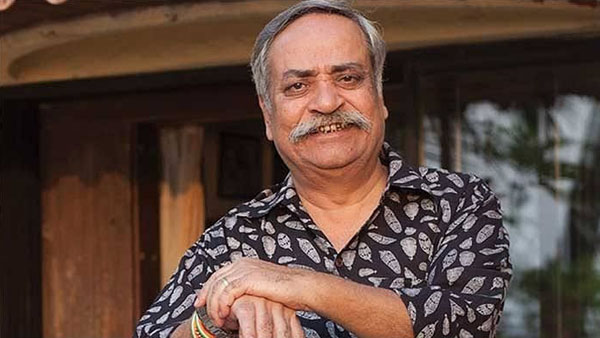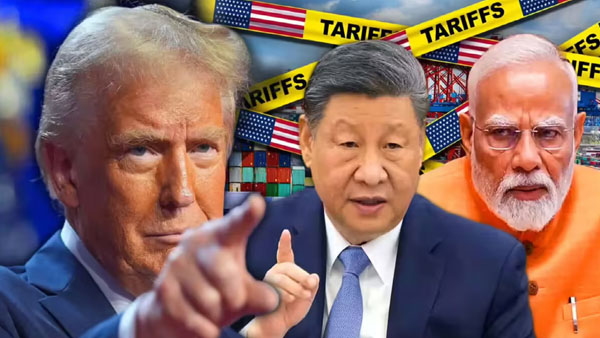By Dipak Kurmi
The passing of Piyush Pandey represents far more than the loss of an advertising legend—it marks the end of an era when simplicity triumphed over spectacle, when human connection mattered more than corporate messaging, and when creativity served not to manipulate but to celebrate the ordinary lives of everyday people. For over four decades, this unassuming man from Jaipur transformed Indian advertising from English-speaking showcases into deeply resonant stories rooted in the vernacular of Indian life and emotion, leaving behind a legacy that will continue to influence how brands speak to consumers for generations to come.
Born into an artistic family in Jaipur, Pandey’s journey to becoming the creative force behind some of India’s most memorable campaigns was anything but conventional. His childhood home served as a “creative factory,” nurturing not just his own artistic instincts but also those of his siblings, who would go on to make their own marks in Indian media. Among his family members was the renowned filmmaker Prasoon Pandey, whose bond with Piyush was built on nurturing each other’s creative visions. This foundation in collaborative creativity would later define Pandey’s approach to advertising—one that valued relationships and collective memory over individual glory.
Pandey’s educational path reflected a life of diverse experiences and unexpected turns. He was a jack of all trades from the very beginning, captaining both the cricket and swimming teams at St. Xavier’s in Jaipur before topping history at St. Stephen’s College in Delhi. His athletic prowess extended to Delhi University, where he captained the cricket team and played at the Ranji level. From sport, he moved to tea tasting, exploring yet another sensory domain. But it was cricket that ultimately revealed his true calling, when his dear friend Arun Lal observed something remarkable: “You come up with better one-liners than anyone else, every day, ten times a day. Why don’t you join the ad world?” That simple observation changed everything.
In 1982, Piyush Pandey joined Ogilvy, and Indian advertising would never be the same. Back then, the industry was dominated by English-speaking campaigns obsessed with Western aesthetics. No one knew that a twenty-seven-year-old would soon be rewriting the grammar of Indian advertising entirely. What struck people most about Pandey was not his creative genius alone—though that was certainly evident—but his remarkable groundedness and ability to connect with people across all strata of society. His brand campaigns, performed on stage at the Arth Festival in Bandra, showcased this unique talent, demonstrating that great advertising need not be confined to television screens and print pages.
Pandey’s philosophy was elegantly simple yet revolutionary: he believed in finding joy in the ordinary, celebrating the extraordinary within everyday life. He often spoke with warmth and pride about his love for Rajasthan, maintaining deep roots in his home state even as his work took him across the nation and eventually around the world. This connection to his origins informed his creative vision—he never forgot where he came from, and he never lost sight of the real people his campaigns needed to reach.
His success lay in a deceptively simple mantra that he articulated as “create films people want to love, not just remember.” While other creative directors chased disruption for its own sake, pursuing shock value and superficial cleverness, Pandey believed in getting into the light rather than forcing audiences into darkness. He didn’t want people working too hard to decode his messages. Instead, he let his stories tell themselves naturally, creating what he called “a ‘gift’ not overdoing.” This restraint, this confidence in simplicity, became his signature.
Over the years, Pandey crafted campaigns that captured the imagination of an entire nation. He cemented Fevicol’s place in Indian popular culture with advertisements that went far beyond selling glue—they became part of the cultural conversation. In 1998, he wrote the lyrics for “Mile Sur Mera Tumhara,” the national integration campaign comprising voices from across India’s diverse linguistic landscape. This anthem of unity became the soundtrack of a generation, demonstrating how advertising could serve higher purposes than mere commerce.
His work for Cadbury redefined how the brand spoke to India, making it synonymous with celebration. The iconic “Pappu Pass Ho Gaya” campaign perfectly captured the joy of small victories that define family life. His collaboration with Asian Paints, Fevicol, and Cadbury lasted for decades, not just because of Pandey’s brilliant creative mind but equally, if not more importantly, because of his likeable demeanor and ability to connect with clients on a human level. For Pandey, great work meant nothing without great relationships—a philosophy that extended far beyond client management into his entire approach to life.
Pandey’s personal life reflected these same values, with family being central to his existence. Only his brother Prasoon and wife Nita were allowed to trim his trademark moustache—a symbolic detail that revealed his trust in intimate bonds. When his daughter wanted to gift their mother diamond studs, she chuckled and shared the story: “Is unme mein main kahan ho?” (Where am I in this?). At his age, when will he wear them? This charming anecdote reveals the self-effacing humor and groundedness that made Pandey not just respected but deeply loved.
His most impactful work perhaps came through campaigns that sought to change society itself. The “Do Boond Zindagi Ke” campaign, created while echoing Amitabh Bachchan’s iconic baritone, helped eradicate polio from India—an achievement that transcended advertising to become genuine public health intervention. When the country was declared polio-free, Pandey considered it his greatest achievement, placing social impact above commercial success or industry accolades.
From “Kuch Khaas Hai” to “Pappu Pass Ho Gaya,” from “Har Ghar Kuch Kehta Hai” (which captured the emotional connection Indian families have with their homes and the stories those walls could tell) to “16 Ki Baari, Masti Sarbari,” his campaigns demonstrated an uncanny ability to tap into the collective consciousness of India. The “Swadeshi Purn” elections campaign helped propel Narendra Modi to Prime Ministership in a political context, showcasing how Pandey’s influence extended into the civic realm.
Combining classical and regional music traditions, his advertisements became the soundtrack of a generation, blending traditional sensibilities with contemporary relevance. He spoke warmly of his collaborators Arun Lal and Lata Mangeshkar, recognizing that great creativity emerges from collaboration rather than individual brilliance.
Piyush Pandey’s numerous accolades included being the first Asian jury president at Cannes International Advertising Festival and receiving a Lifetime Achievement Award as the first person from advertising to win the prestigious Padma Shri. Yet despite these honors, he never let success inflate his ego. Ogilvy retained accounts like Asian Paints, Fevicol, and Cadbury for decades not merely because of brilliant campaigns but because Pandey understood that sustainable creative excellence requires humility and genuine human connection.
He made advertising a monumental contribution to the world of communications, as former Union Minister Shri Narendra Modi acknowledged when paying tribute to Pandey. His philosophy transformed Indian advertising from English-speaking showcases into stories rooted in everyday life and emotion, teaching an entire industry that the smartest advertising doesn’t make people feel inadequate—it makes them feel seen, valued, and celebrated exactly as they are.
With his passing, India has lost more than an advertising legend. The nation has lost a storyteller who taught us to see the extraordinary in the ordinary, to find joy in simplicity, and to celebrate ourselves unapologetically. One of Pandey’s most powerful ideas—that “no audience is going to see your work and say, ‘How did they do it?’ They will say, ‘I love it'”—encapsulates his entire creative philosophy. He didn’t make advertisements to be admired from a distance; he created work that invited people in, that made them feel something authentic and true.
Thank you, Piyush Pandey, for showing us that the best stories are the ones that make people feel seen. Your legacy lives on in every time someone smiles at one of your films or hums one of your jingles. The craft you built, the warmth you shared, and the unwavering belief that creativity serves humanity—these gifts will continue shaping how India sees itself and how brands connect with the hearts of ordinary people for decades to come. The moustache may be gone, but the man behind it, and everything he stood for, remains eternal.
(the writer can be reached at dipakkurmiglpltd@gmail.com)




